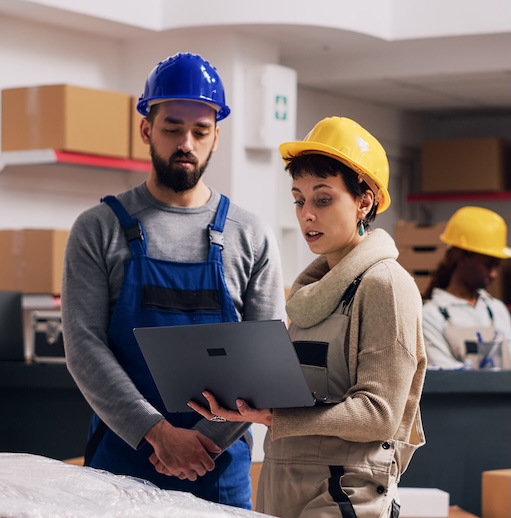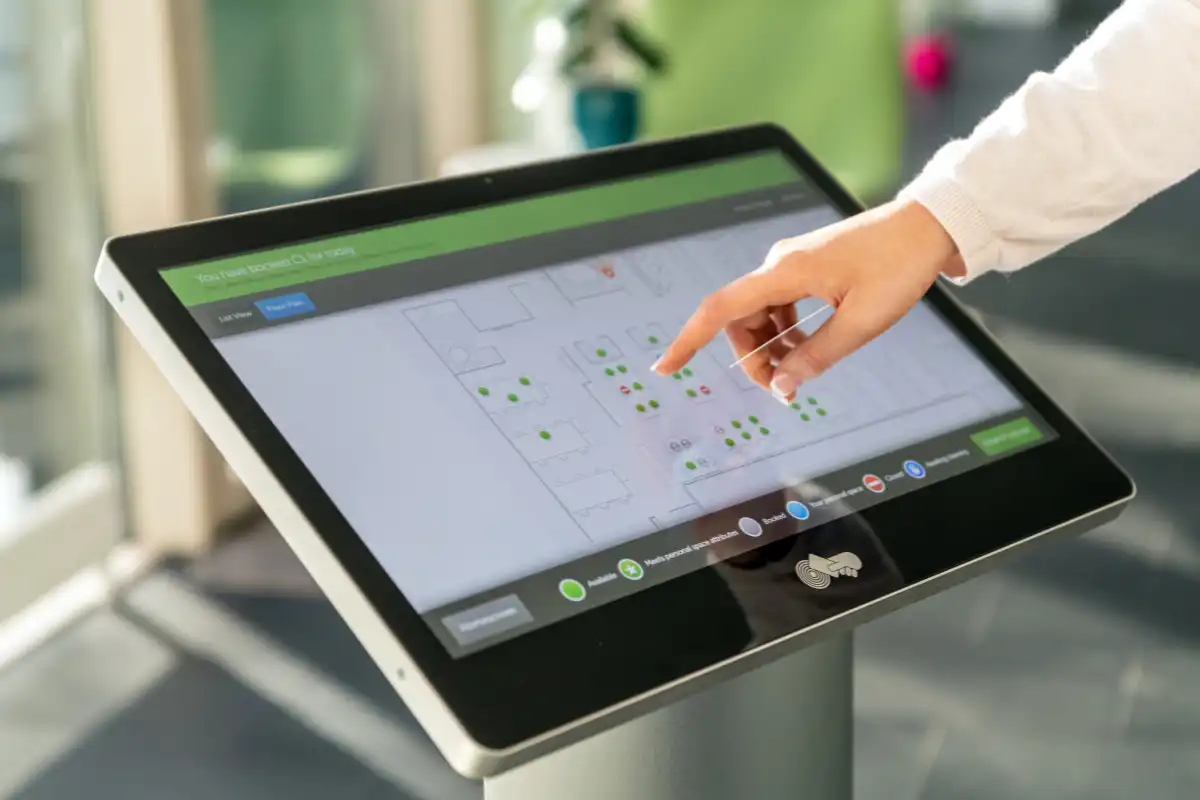
No matter the industry, every workplace wrestles with the same issues of making hybrid schedules run smoothly, keeping large portfolios under control, and giving employees the right spaces at the right time. These challenges look different in each organization, but the goal is always the same—create a workplace that runs efficiently and supports the people who use it.
Key takeaways
- Standardization drives efficiency at scale. From Arup’s 80 sites to the global software company’s 30 locations, consolidating fragmented workplace systems into a single platform reduces complexity, improves oversight, and enables smarter decision-making
- Data visibility leads to measurable ROI. Organizations like the Met Office and the biotech manufacturer used analytics to improve utilization by 30 percent, cut double bookings by 90 percent, and make informed real estate decisions that directly lower costs
- Worktech tools enhance employee experience. Whether it’s accessibility features at a European bank, flexible booking at Rendall & Rittner, or service request transparency at the nonprofit healthcare agency, these customer success stories show how digital workplace tools remove barriers and allow employees to focus on higher-value work
How enterprise-level organizations use worktech to optimize their facilities
Without standardized processes and connected technologies, inefficiencies quickly multiply, and employees struggle to stay productive. By adopting modern worktech solutions, companies are finding new ways to streamline operations, improve collaboration, and deliver consistent workplace experiences.
Arup: Creating consistency across 80 sites
Arup, a global collective of 19,000 employees across 80 sites in more than 33 countries, struggled with fragmented workplace management. Each office operated as its own silo with unique processes and disconnected technologies, making it difficult to consolidate data and support employees who frequently moved between sites.
Solutions: To address its challenges, Arup partnered with Eptura to unify workplace operations and strengthen employee experience. They implemented:
- Serraview by Eptura for global space management
- Eptura Engage in the UK to strengthen the employee experience
- Eptura Visitor to streamline check-ins
Results:
- More efficient space utilization across 15,000 workpoints
- Better collaboration between sites and regions
- Improved consistency in workplace processes
- Higher employee satisfaction with booking and support services
- Clearer visibility into space pressures through unified reporting
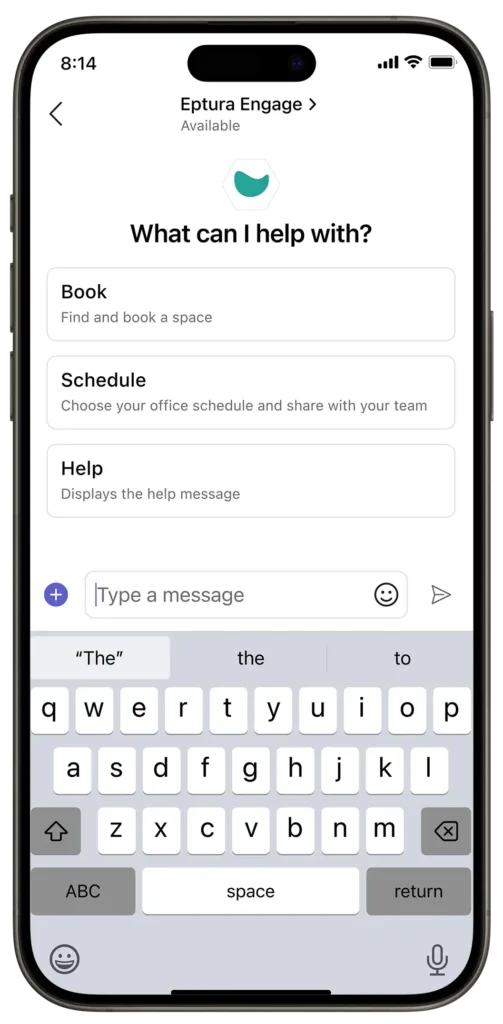
Rendall & Rittner: Driving efficiency with flexible work and space optimization
Rendall & Rittner, a property management firm with more than 2,000 employees and six offices, struggled with static desk assignments that didn’t match the needs of a mobile workforce. Many employees regularly traveled for site visits, leaving some offices underutilized while others became overcrowded. Hybrid work highlighted the inefficiencies of maintaining a large central London office, and leaders lacked the data needed to make informed decisions about space allocation.
Solution: The company adopted Eptura’s workspace booking tools, which included:
- Desk and meeting space reservations
- Mobile app access
- QR code check-ins
- Integration with Microsoft 365 (book directly through Outlook)
- “Team day” scheduling to encourage collaboration
- Business rules to guarantee departments with fixed desks could still reserve space
Results:
- Data showed the large Aldgate office was no longer the best fit. This prompted a shift to serval smaller, strategically located offices
- This transition reduced costs and improved space efficiency
- In the Vauxhall office, analytics revealed a need for more collaboration space. This led to new meeting rooms and a redesigned central reception for client visits
- Employees reported higher satisfaction and productivity, supported by the flexibility to work where and why they performed best
European bank: Enhancing workplace inclusivity with digital tools
A leading European bank with more than 6,500 employees across 29 locations wanted to strengthen its accessibility initiatives by making office accessibility easier to navigate. Employees with additional needs often struggled to confirm whether a location had features such as wheelchair access or lifts. The existing search function in Eptura Engage only filtered by individual space attributes, which left employees without a clear way to determine if an entire building met their requirements.
Solution:
- Used the Concierge feature in Eptura Engage to launch an “Accessibility” tile, providing one-click access to details like floor layouts, parking guidelines, and facility support
- Rolled out the feature in just one week
Results:
- Reduced support requests and internal emails about finding accessibility information
- Employees adopted the feature quickly and incorporated it into their daily workflows, saving time previously spent searching across platforms

How facility operations improved by digital workplace tools
Without the right tools, organizations face challenges like space management and double bookings. These inefficiencies create frustration for employees and lost productivity for workplace teams.
Met Office: Reducing booking conflicts and increasing utilization by 30%
Met Office, the United Kingdom’s national weather service, operates from headquarters with 2,500 employees and 75 meeting spaces spread across multiple floors. Employees regularly faced double bookings, abandoned reservations, and wasted time searching for available rooms. Facilities teams had little visibility into how spaces were being used, leaving some rooms empty due to no-shows, while others were overbooked.
Solution: Met Office introduced Eptura’s meeting space booking solution. The platform included advanced analytics and presence detection sensors, allowing employees to :
- See room capacity, video conferencing options, and equipment availability at a glance
- Instantly book spaces through a centralized platform
- Benefit from sensors that automatically released unused rooms for others
- Give facility managers access to analytics on peak demand, booking trends, and no-show rates to reconfigure layouts and add collaboration areas where needed
Results:
- Meeting space utilization rose by 30%
- Double bookings dropped by 90%
- Employees now book spaces in minutes instead of spending up to 20 minutes searching, saving time and reducing stress.
Read the full success story to discover how much faster the team can book space and improve collaboration.
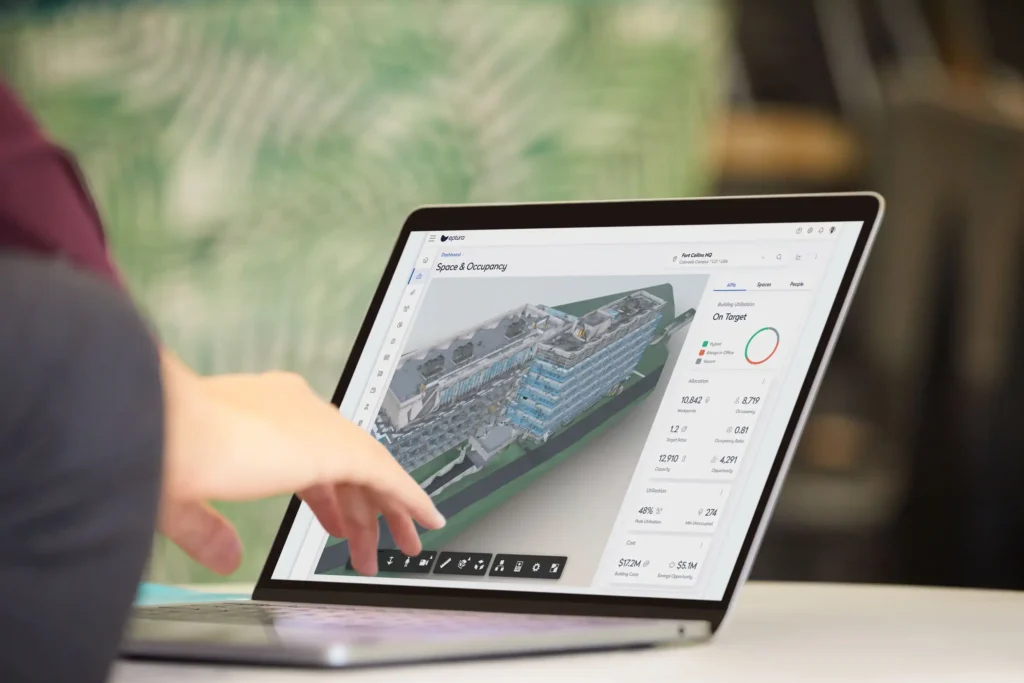
Global software company: Centralizing workplace management across 30 locations
A global software and technology company with more than 10,000 employees and 30 locations struggled with managing multiple workplace and real estate systems after a series of mergers. The facilities team needed to handle 1.5 million square feet of space, 13 reservation centers, and a return-to-office mandate.
Solutions: To simplify its workplace and real estate system, the company consolidated processes into a single Eptura platform, which:
- Integrated occupancy planning, move management, reservations, and space insights
- Eliminated redundancies and reduced complexity
- Streamlined move management and seating assignments for new hires
- Improved visibility into availability with centralized reservation systems
- Preserved historical data
Results:
- Boosted employee satisfaction and reduced operational complexity
- Improved space alignment usage with real estate strategy
- Leveraged enhanced analytics to uncover underused areas and better support collaboration
How to improve daily experiences for employees and visitors
Improving daily experiences goes beyond managing space. It’s about making every interaction in the workplace smoother, faster, and more intuitive. From streamlined visitor check-ins to simplified employee booking systems, digital workplace tools reduce friction in the moments that matter most.
Nonprofit healthcare organization: Achieving 99% service request completion and reducing costs
A nonprofit healthcare agency in California manages nearly 300,000 square feet of space across six locations with a workforce that grew from fewer than 200 employees in 2013 to more than 500 today. When the pandemic shifted 90% of staff to remote work, the organization’s reliance on email and Excel spreadsheets for service requests and space management became unmanageable.
Solutions: To overcome challenges with duplicate submissions, lack of transparency, and inefficient processes, the organization adopted Eptura as its central hub for facilities and employee support. The platform:
- Consolidated service requests for both facilities and at-home equipment into one system with real-time transparency
- Enabled leaders to track and manage their real estate footprint more effectively
- Provided valuable data through reporting tools
- Closed underused spaces totaling 60,000 square feet, lowering operating costs and generated revenue through leasing
Results:
- Achieved 99% on-time service request completion rate, surpassing its original 85% goal
- Increased efficiency by freeing up staff time and reducing manual effort
- Streamlined workflows through a centeralized platform
- Positioned the organization to scale operations while maintaining high service quality
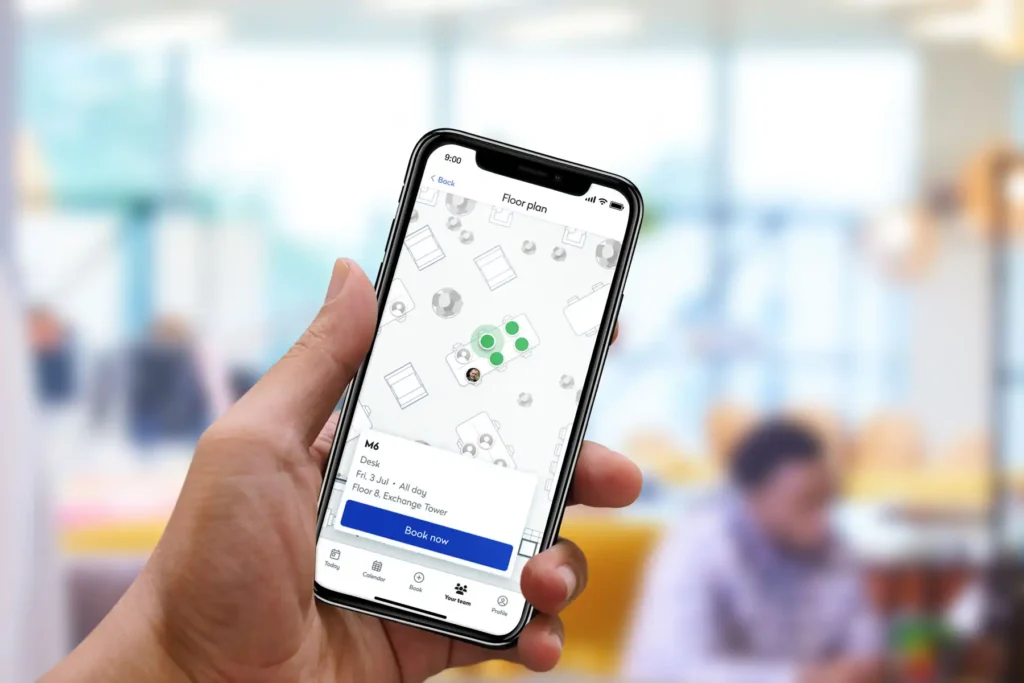
What these worktech case studies show us
These worktech case studies show that progress in the workplace often comes from the same place: better data, stronger visibility, and tools that support day-to-day decision-making. From boosting utilization to improving reporting accuracy, customers are finding practical ways to run their workplaces more efficiently and support the people who use them.
